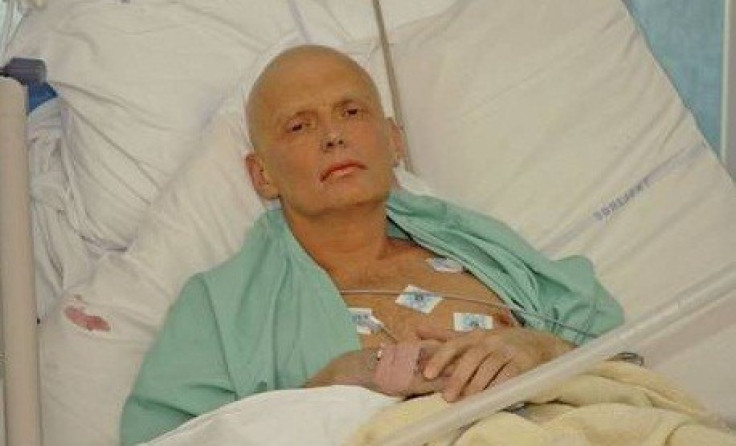Alexander Litvinenko : 'Russia Behind Poisoning of MI6 Triple Agent'

Russian spy Alexander Litvinenko was working for MI6 when he was poisoned by the Russian government, a coroner investigating his death has been told.
The former KGB spy was acting as a 'triple agent', working with both British and Spanish secret services to investigate the Russian mafia in the days before his death, a pre-inquest hearing heard.
Hugh Davies, counsel to the inquest, also said documents submitted by the British government show that the Russian state was involved in Litvinenko's poisoning.
Davies said confidential government documents "established a prima facie case as to the culpability of the Russian state in the death of Alexander Litvinenko".
Litvinenko, 43, died in November 2006 after being poisoned with highly radioactive Polonium-210 in London. It is alleged he was poisoned after drinking tea with two former Russian colleagues, Andrei Lugovoi and Dmitry Kovtun, at the Milennium Hotel in Mayfair.
He died three weeks later in University College Hospital, after his family released a photograph which revealed the damaging effect the poison had on his body. Russia refused to extradite the main suspects and has always denied involvement in his death.
Ben Emmerson, the lawyer for Litvinenko's wife Marina, said the inquest should also consider whether MI6 failed in its duty to protect against a "real and immediate risk to life".
Duty to ensure safety
Emmerson said: "At the time of his death Mr Litvinenko had been for a number of years a registered and paid agent in the employ of MI6.
"That relationship between Mr Litvinenko and his employers MI6 is sufficient to trigger an enhanced duty by the British government to ensure his safety when tasking him on dangerous operations."
Litvinenko was due to travel to Spain with Lugovoi to provide intelligence for an investigation into links between the Russian mafia and President Vladimir Putin.
Davies added there was no evidence in the documents to suggest that Britain was involved in the death - not that they could have prevented it, he added.
It was revealed that Litvinenko would regularly meet with an MI6 handler, known only as Martin, and payments were made by the British and Spanish secret services to a joint bank account the spy held with his wife.
Russia has indicated it would like to become an interested party in the inquest, which will take place next year before high court judge Sir Robert Owen.
© Copyright IBTimes 2024. All rights reserved.






